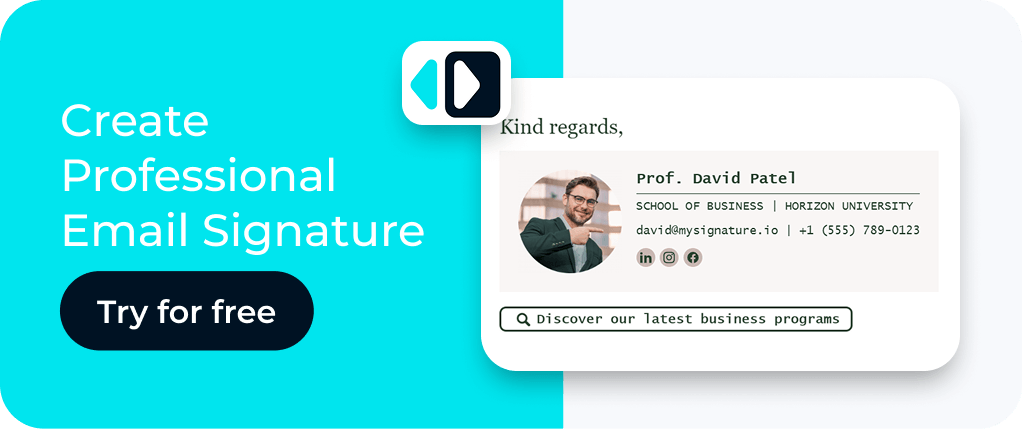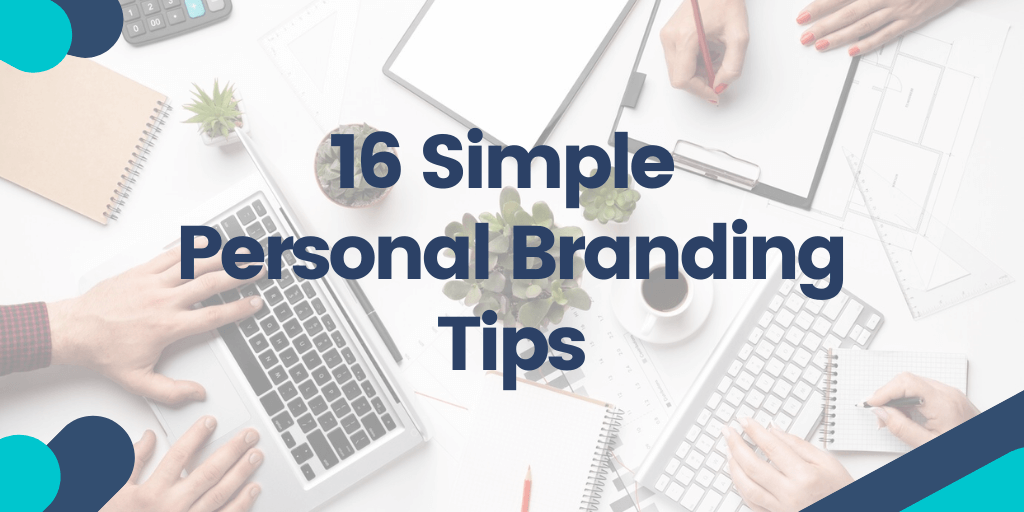Businesses invest heavily in building their brand to enhance awareness, boost sales, and outpace competitors. The brand is not limited only by the market position of the company or its external communication. At the same time, inside the company exist tens or hundreds of personal brands. This magic happens because every employee has his personal brand, wanted or not.
Contents
- Do you really need a personal brand at work?
- Personal branding to apply for your new job
- How to improve your internal branding to get a promotion
- Channels to share your expertise
Do you really need a personal brand at work?
You can be surprised how many things form your reputation. It includes your professional skills, communication with colleagues, and even how you rock the office parties.
In other words, your personal brand at work is what your colleagues think about you or how they would describe you. For example, are you a quiet analyst who always does everything well but no one knows about it, or an office superstar who is always in the center of attention?
In the same way, as a company brand contributes to success in the market, building your personal brand identity at work will bring you career success.
Personal branding to apply for your new job
Now, let's walk through the first step to start creating personal branding at work. It is not about your first day at the new job. You should start planning and building your brand far before searching for a job.
You might also like: "Introduction email to new team: Tips & Templates"
Build your long term career strategy
To clarify your strategy, think of it as a long-term career plan that aligns with your professional opportunities. Conduct a SWOT analysis to evaluate your strengths, weaknesses, opportunities, and threats. Additionally, seek constructive feedback from colleagues or friends, as this can provide valuable perspectives on how you fit within the company culture.
Next, determine your future goals and identify the skills and experiences required in your desired field. Set these as specific goals and also address your weaknesses, aiming to transform them into strengths over time.
Find who you to build a relevant personal brand
Building your personal brand at work allows for deeper self-discovery. Understanding your identity and values is crucial for success. Consistent self-improvement, leveraging your strengths, and engaging with colleagues will enhance your reputation, leading to future career opportunities.
Find your superpower
To unveil your superpower, give the answers to the questions below:
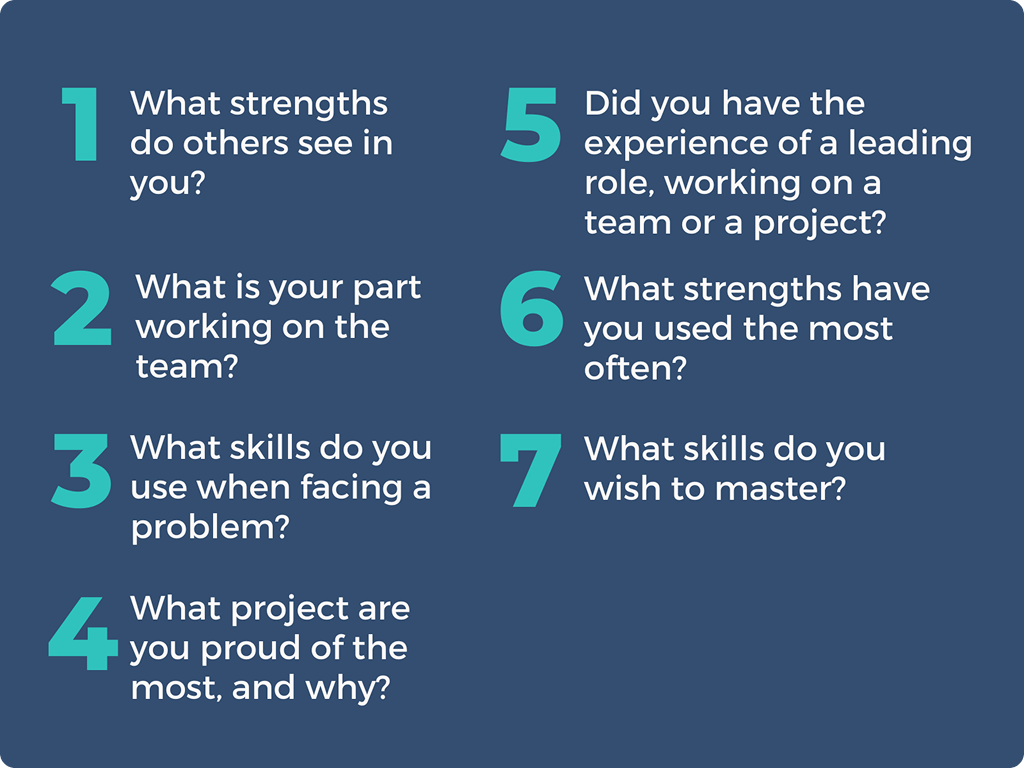
Find your major weaknesses
Identify your weaknesses honestly, as they can transform into strengths with effort. Seek feedback from others to gain insights into how you handle stress and discover overlooked areas. To find your major weakness, answers to the questions:
- What negative work habits do you have?
- How do others perceive your weaknesses?
- Which tasks do you avoid due to lack of confidence?
- What aspects of your education need improvement?
Once you recognize your weaknesses, create a plan to address them, aligning with your long-term career goals to stay motivated.
What are your passions?
Did you pay attention that you are the most engaged and satisfied if you're doing something with passion? It inspires you and people around.
So, integrate your passions into your day-to-day activities and connect them with your goals.
- What are your favorite activities?
- Why did you choose this professional area?
- What type of people are you drawn to?
- Do you connect your passions with your development and career goals?
Define your brand audience
Before you start spreading your personal brand, you must identify who wants to know about you. A clear definition of a brand target audience is the foundation of personal brand promotion.
For example, if you are looking for a new job, your brand audience can be recruiters or one recruiter from a particular company. According to stats, 87% of recruiters are looking for candidates using LinkedIn. Armed with this information, you should turn your LinkedIn profile into the leading personal brand communication channel.
Find industry experts to follow
Successful personal brands are often built by dedicated industry experts. Identify and follow these examples, analyzing their brands and content strategy for inspiration. However, ensure that you maintain your individuality.
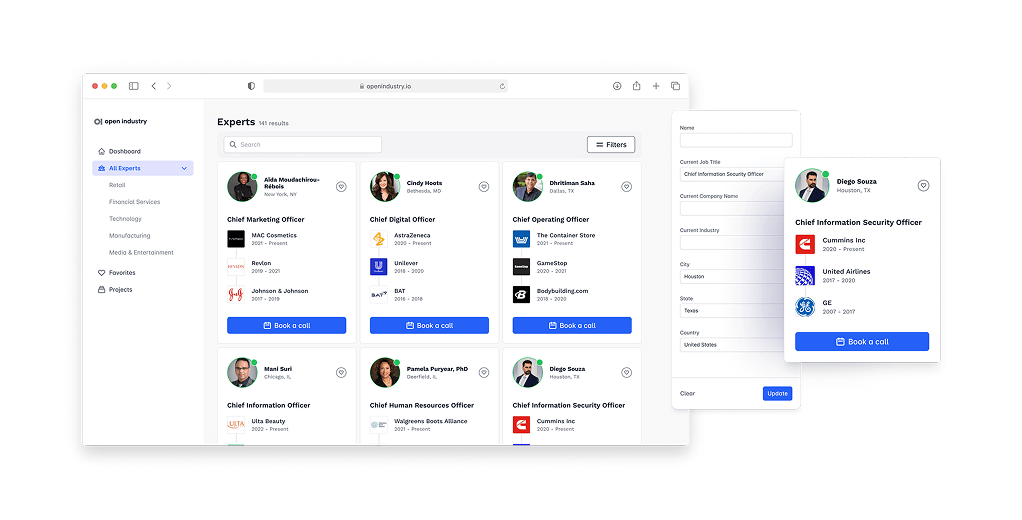
source: openIndustry
Find companies you want to work for
You've identified who you are and where you want to go.Now, focus on company values that align with yours for your long-term career strategy.When your values match theirs, your work experience will be invaluable. For example, if a company's core value is employee development and you share that belief, you'll work toward common goals together.
Ask niche experts for informational interviews
Finding niche experts, catch every chance to the tail. Ask them all possible questions that can help you reach the same success.
While interviewing experts, you can learn about the inner working of your industry. For example, what skills the leading professionals have, or what difficulties they have faced on their way, and other insights, will help you build a bright career.
Here are some questions, as examples:
- How do you get into this industry?
- What are the biggest challenges?
- What changes have you noticed in the last couple of years?
- Where is the industry heading?
Create a personal elevator pitch
You never know when you'll meet a potential employer—whether at a conference or networking event. Be prepared with a brief elevator pitch framework about yourself, including who you are, what you do, and your career goals.
Keep it under 1 minute. To practice, think of yourself as a startup founder pitching your project to an investor in 30 seconds, following standard pitch deck consultants.
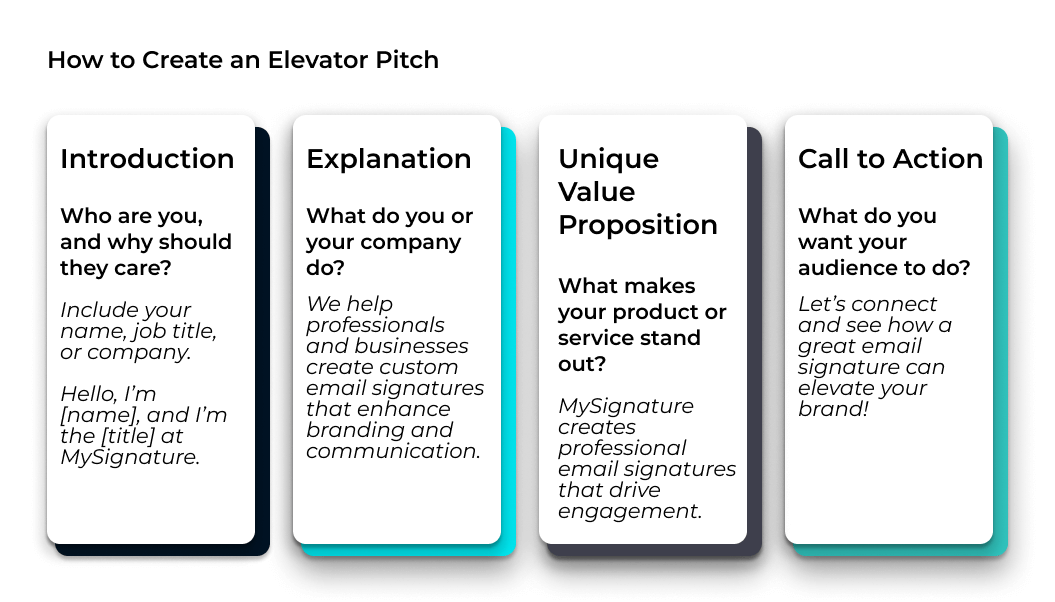
Ask your colleagues for professional recommendations
Collect feedback from all sources, including current and former colleagues, as they are often willing to assist. If you're new to the job market, seek recommendations from organizations where you've volunteered, internships, or project members.
They can provide feedback on your social profiles or write recommendation letters.
How to improve your internal branding to get a promotion
Now let's consider the personal brand in terms of your PR inside your company. Personal branding within the corporate workplace helps you stand out and be on the top of the list of potential candidates for promotion.
Ask yourself what your goal is
Before building your brand at work, define your destination. Setting a clear goal will guide your career journey. Goals may include:
- Change the department you work at
If your current role limits your potential, seek to transition, as companies often support valued employees. However, this requires reshaping how others perceive your past role.
- Get a head role
Aspiring for a managerial role is natural for career growth, and cultivating your personal brand is essential for this.
- Get a higher salary
If your goal is to get a higher salary, it is okay. A well-built personal brand will do it almost instead of you. After all, no one will doubt that a person with an excellent reputation deserves it.
Determine your current reputation in the company
Each goal demands a distinct reputation. For example, a higher salary emphasizes professional skills, while a leadership role prioritizes management abilities. Try to find out what reputation you have now. Is it leading you to the aim or in the opposite direction? Or maybe, you already have the one you need.
Understand how colleagues perceive you through informal chats or by seeking honest feedback.
Be proactive and learn
When building your personal brand at work, avoid being an invisible hard worker. Be proactive and engage in company activities, particularly those related to your professional path, where you can showcase your expertise.
Don’t wait for invitations. Instead, seek to participate or initiate your own projects to demonstrate management skills vital for career advancement.
Build your brand voice
Everyone is unique. Your specialty can help you stand out and achieve your goals. While building your brand, remain authentic. Your brand voice should reflect your true personality and align with your values and skills. Create a mental "vocabulary" of the traits you want people to associate with you.

Share your success
You or your team can bring fantastic results to the company. But, to be honest, if we are talking about personal brand promotion, it is worth nothing if the colleagues don't know about your wins. So spread the word about your team's success through the company.
Turn it into the internal PR of your team inside the firm, then your colleagues and managers will take your professionalism for granted. Use your email signature as a subtle yet powerful tool to spread the word and showcase your achievements. With MySignature, you can easily create a signature that highlights your professional wins and strengthens your personal brand at work.
Speak up during the meetings
There isn't a better place for personal brand promotion at work than a meeting.
Here you can show your colleagues or top managers your best. To do that, always attend meetings prepared and fully ready.
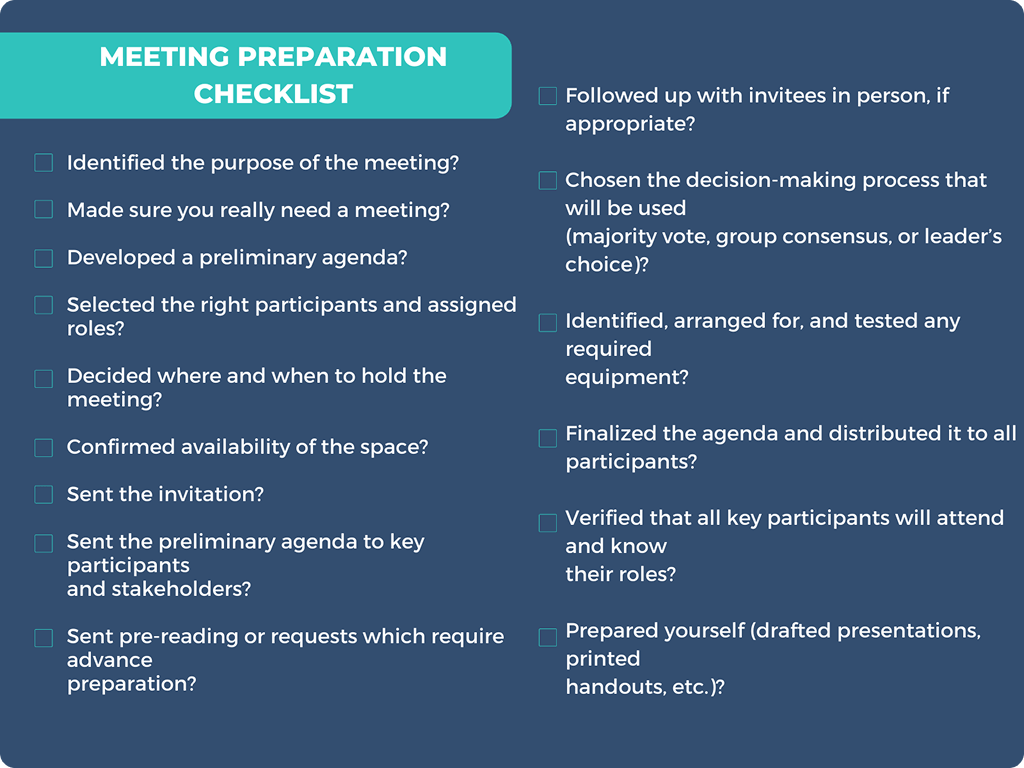
source: HBR
You shouldn't be afraid to talk and express your thoughts but not overdose on them. Don't do the talking for the sake of being noticed. Instead, have at least one prepared question in your pocket. Moreover, ask something unusual or unexpected, make others think, and look at things differently.
Invite teammates to your events
Personal branding within the corporate workplace isn't framed only by working meetings. Involve your teammates when you're running a presentation or take part in a brainstorm of other departments. Also, invite managers to share their thoughts and let them reveal your soft and hard skills.
Moreover, a personal brand is not limited by the company walls. Often, good professionals are invited to webinars or company events as experts.
Become a coffee mate
As you already know, it is not enough to be a super professional to get a promotion to build a successful personal brand at work. Generally, the biggest part of the work is based on building relationships with other people.
Therefore, before you become a team leader, work on establishing communication with colleagues. For example, always find time for a coffee break with colleagues, where you can engage in casual conversation. One more helpful tip: never go to lunch alone. To sum up, communicate and look for networking opportunities daily!
Channels to share your expertise
We all have to agree that strong online visibility is essential. Building your personal brand utilizes the same channels as any other brand.
LinkedIn is pivotal, with 80% of recruiters sourcing candidates here. To maximize your social media presence, network with industry leaders and ensure your profile is complete, highlighting your achievements and expertise.
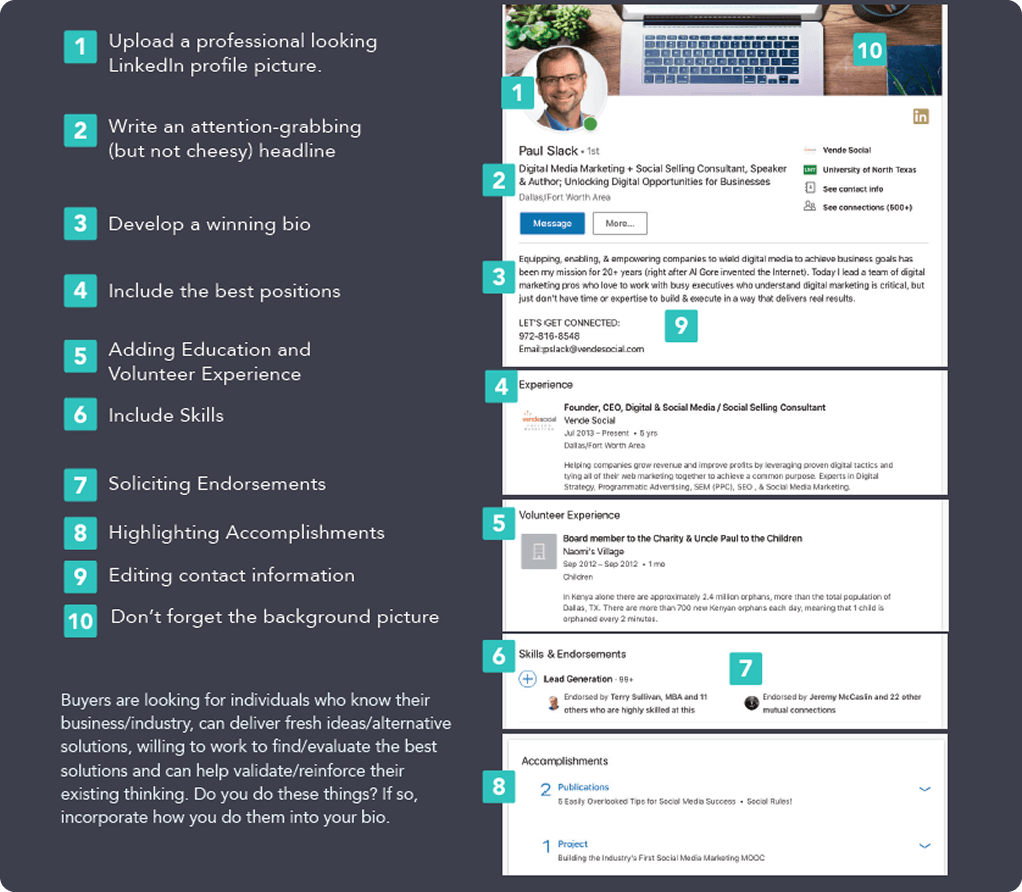
source: vendedigital
Additionally, sharing expert posts builds your brand and fosters connections with peers on social media platforms. For Twitter, focus on your industry by using relevant hashtags and engaging with top experts to increase your visibility and impact.
- Blog on Medium
Content marketing is vital for personal branding. Writing articles allows you to widely share your thoughts and experiences. Don’t forget to post them on social media to enhance your recognition, reputation, and community engagement. For an easy blogging start, consider Medium – a user-friendly platform with a large audience.

source: medium
- Quora
Quora is the most popular Q&A platform, where people all over the world share their knowledge. So, here you can show yourself as an expert in professional topics and share your experience.
- Facebook groups
Facebook groups are an excellent opportunity to connect with people who belong to your professional activity. Find and join active groups to learn something new from industry colleagues and share your experience and knowledge.
- Publishing on relevant media
To do your guest publishing well, reach out to websites and blogs with authority and a high reputation in your industry. Blogging there is an excellent job opportunity for you to spread your expertise and widen the audience.
- Use HARO to share your expertise
HARO is an online platform connecting journalists and expert bloggers. Here you can answer the questions posted by journalists. After, they will refer to you as an expert in their articles.
- Become a speaker at conferences or other events
Being a speaker at the conference is the most powerful way to prove your credibility and professionalism. It makes you an expert in others' minds.
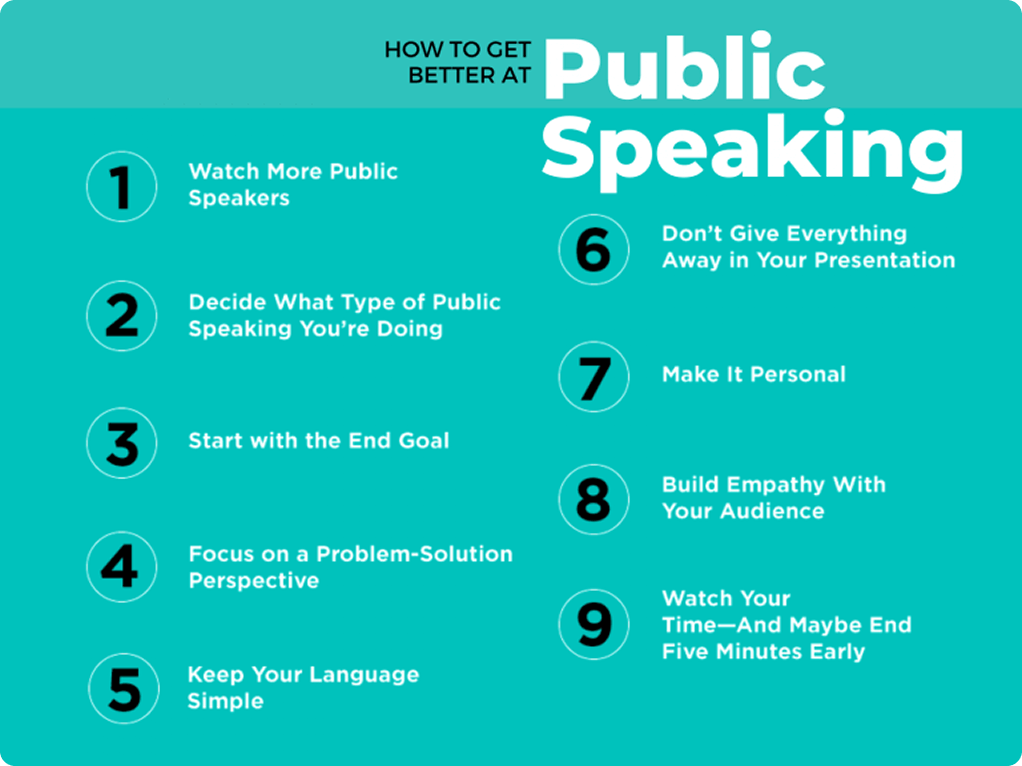
source: careercontessa
Personal brand promotion is not about stars or freelancers only. It doesn't matter if you work for a small, large company or a corporation; a well-built personal brand at work positively affects your career.
A strong personal brand at work is all about the details, and your email signature is no exception. Create a professional one with MySignature and stand out today!
